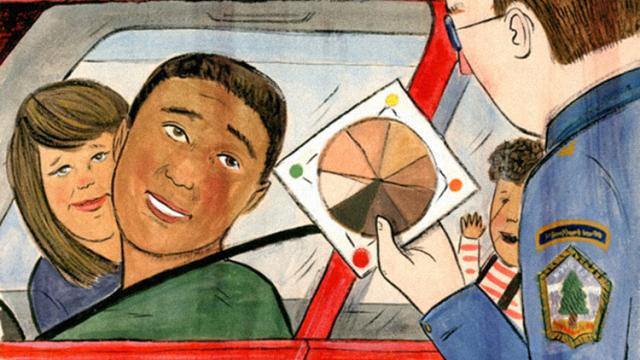
For another year running, the issue of inequality dominated economic discourse. In 2014, a French economist's epic treatise on the wealth divide — Thomas Piketty's “Capital in the 21st Century” — turned into a surprise bestseller, while the message of the 2012 “Occupy” movement appeared to resonate in the corridors of power: The head of the Federal Reserve, Janet Yellen, felt compelled to warn of the peril posed by the widening gap between the rich and the poor. Even the annual talkshop of the global 1 percent at the World Economic Forum (WEF) in Davos took notice, labeling inequality the top global economic cause for concern in the coming year.
Acknowledging the economic risk of inequality was an important step forward, but something was missing from the conversation. In their statements, neither Yellen nor the World Economic Forum mentions the factor of race. Piketty dedicated a handful of pages in his 696-page book to a discussion of the Atlantic slave trade. The discussion on inequality among policymakers and pundit remains largely colorblind.
Yet, the reality of inequality in the United States is anything but colorblind. White households have been, on average, significantly wealthier than African-American households ever since economists started measuring the racial wealth gap; most recently, the median white household was found to own 13 times as much wealth as the median black household, according to a Pew Research analysis of Federal Reserve data. Black unemployment is consistently stuck at double the white rate. And educational attainment doesn't do much to close the gap: According to the 2013 Survey of Consumer Finances, the average black college graduate still accumulates less wealth than the average white high school dropout.
In absolute terms, black people are not as poor as they were before the civil rights era, according William Darity Jr., a professor of public policy at Duke University. But judging black wealth compared with white wealth tells a different story. "I would argue, if you look at the relative economic position, we actually have not made substantial progress of any significance since 1964," he said.
By some measures, racially stratified economic inequality has gotten worse since the end of the Jim Crow era. In 1967 the median white non-Hispanic household's income was 43 percent higher than the median black household's income. In 2013, according to the most recent Census data available, white income was 68 percent higher.
Racial inequality persists in part because U.S. public policy has never really corrected for the racist laws and practices of the past, according to Valerie Wilson, director of the program on race, ethnicity and the economy at the Economic Policy Institute, a left-leaning think tank. Even though the government now mandates equal access to public accommodations and has banned segregationist practices such as redlining, the inequalities created by those practices still keep getting passed down from generation to generation.
“We can change discriminatory laws, but unless we then go back and make an effort to remedy the impact that those laws have over an extended period of time, inequality just continues to persist and gets worse,” said Wilson.
A 2013 Brandeis report on the racial wealth gap identified inheritance and homeownership as two main drivers of inequality between black and white households. Inheritance reinforces long-term inequalities because it moves wealth across generations; gaps in homeownership can partly be attributed to a history of residential segregation and "historic differences in access to credit,” according to the report.
And then there's the housing crisis. When a wave of foreclosures rippled across the United States beginning in 2007, people of color got hit the hardest, largely because they were disproportionately bound by predatory lending agreements. The financial crisis and recession may have been a disaster for white households, but they were something closer to an apocalypse for black families. According to the Brandeis report, “half the collective wealth of African-American families was stripped away during the Great Recession.”
There’s no way policymakers can adequately address inequality in the United States overall without recognizing the effects of the racial wealth gap, said Wilson.
“I think it’s insane to try to have these colorblind discussions about inequality when it’s clearly not a race-neutral issue,” she said. “And I understand how some may feel that there’s political expediency in doing that and that you can build a broader coalition. But I honestly don’t think you can remedy the problem without addressing race and disparate racial impacts.”
3 WAYS TO SHOW YOUR SUPPORT
- Log in to post comments















